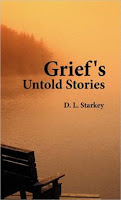When Christianity first started, the followers of Jesus lived in a world full of people in situations that were really at odds with Christ and his teaching. What were they to do now that they were spiritually Christian, but almost everybody around them was a culturally very Roman?
The early followers of Christ often took an approach to spreading the Good News of the gospel that was not only counter-cultural to the Roman and Greek way of life, but was countercultural to how the church today often handles the uneasy tension between the church and society.
The early church wanted to reach their cities – they cared about them. But they lived in cities where they were surrounded by a lot of really bad stuff. For example, the holiday that we now know as Christmas was a week of serious indulgence and license in Roman society; Easter was originally a fertility celebration... the list goes on.
So, the early followers of Christ decided that the best way to communicate the Gospel was to enter the current cultural stream and divert it to Christ’s ends. They didn’t move out of the neighborhood; they moved even more deeply into the neighborhood.
As a result we see some interesting intersections of church and culture:
- The kriophoros, or lamb bearer (for Christians, The Good Shepherd) was a popular icon of a shepherd that early Christians used to symbolize the passages in Scripture that referred to Christ as a shepherd.
- The orant, a praying figure that symbolized piety, was used to symbolize the praying saint.
- Endymion, a young man who fell in love with a goddess, was often depicted sleeping in a cave, which is where his lover arrived to visit him. This image became the early church’s motif for Jonah under the withered vine.
- Though not nearly as common as the Good Shepherd motif, Christ also appears in early Christian art in the form of the Greek god Orpheus. There is a fresco of Christ as Orpheus in the Catacombs of Peter and Marcellus in Rome, which dates from the 4th century. Another example of Christ as Orpheus is in the Catacomb of Domitilla. Clement of Alexandria wrote: “Orpheus pacified wild beasts by the power of his song…Jesus’ new song tames “the most intractable of all animals – man.”
- We find all these images on the walls of the catacombs, where the early Christians hid from persecution from the very people whose culture they were subverting for the cause of Christ.
My point? When Jesus came to earth he loved, he moved into the neighborhood; he blended in with normal cultural expressions (which is very different from blending in with cultural norms/worldviews).
The early church did this too – “As the Father has sent me, so have I sent you.” Jesus didn’t avoid cultures; he entered into the stream of history and made himself known; the early church realized they were called to do the same.
This brings me to Christmas (and Easter, and Halloween…) An article at CRI asked the question, “Should Christians Celebrate Christmas?” The article noted:
“But what of the fact that December 25 was the date of a pagan festival? Does this not prove that Christmas is pagan? No, it does not. Instead, it proves that Christmas was established as a rival celebration to the pagan festival. That is, what Christians did was to say, "Rather than celebrate in immorality the birth of Mithra, a false god who was never really born and who cannot save you, let us celebrate in joyful righteousness the birth of Jesus, the true God incarnate who is the Savior of the world."
Sometimes it is urged that to take a pagan festival and try to "Christianize" it is folly. However, God Himself did exactly that in the Old Testament. Historical evidence shows conclusively that some of the feasts given to Israel by God through Moses were originally pagan agricultural festivals, which were filled with idolatrous imagery and practices. What God did, in effect, was to establish feasts which would replace the pagan festivals without adopting any of the idolatry or immorality associated with them.”
That, I think, is what we mean when we talk about “being in the world but not of it.” We are people with a dual citizenship, and our goal is not to alienate our fellow citizens of earth. Our goal is enter the stream of history and find a way to channel the life and the energy that is there to the glory of God.
I believe Christians should be entering into cultural holidays, no matter what their origin or current expression, and redeeming them. I get that many have pagan origins. I just don’t care. I am far more interested in what Christians are doing today to remind people of Christ’s birth at Christmas, Christ’s death and resurrection at Easter, and Christ’s ultimate authority over death, hell, and the grave at Halloween. For that matter, it wouldn’t hurt to use the 4th of July to talk about the freedom Christ brings; Memorial Day to commemorate those who have died for the cause of Christ; Labor Day to remind ourselves that our workplace is a mission field; New Years Day to talk about the new beginning that Christ offers in our lives…
I wonder how creative we can be with the Super Bowl?


























